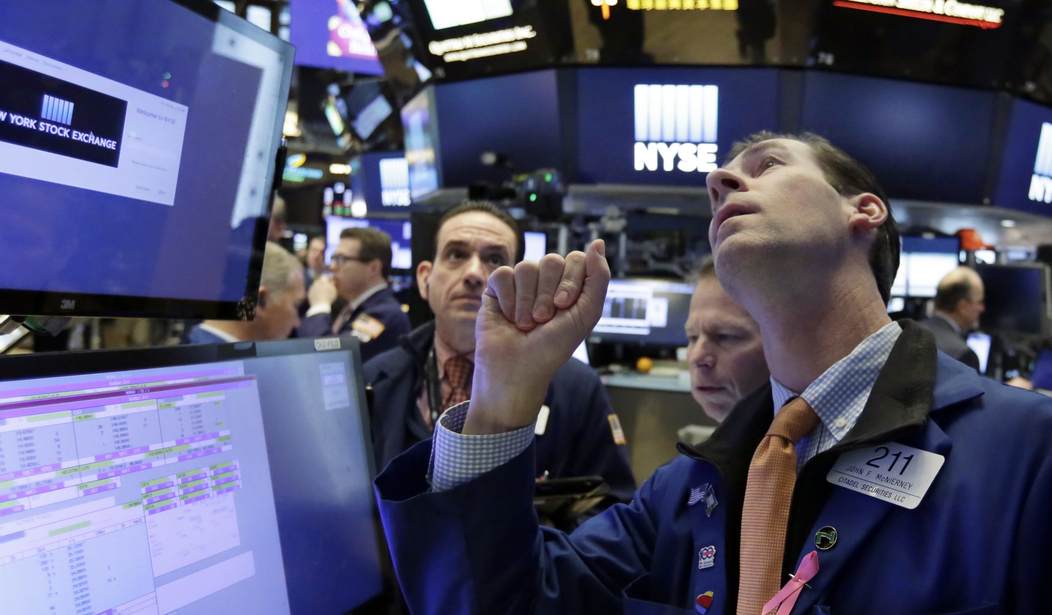One day the stock market is up, the next day it is down.
It’s as if investors just can’t make up their minds. There’s good reason for that. There are almost too many variables for Wall Street to absorb quickly.
The stock market has been like a roller coaster all week, a far cry from the solid gain-after-gain in the market we have seen for much of the past few months. The Dow Jones Industrial Average advanced by almost 18 percent in the year through Thursday, an exceptional rally by most standards.
Recently, though, things have been jittery. On Monday the Dow, which tracks 30 large stocks, fell more than 1,500 points at one point during the trading day, its biggest point-drop on record. On Tuesday, the Dow rallied. Wednesday it moved more or less sideways. Thursday, it sank.
The startling up-and-down moves reflect a change in how investors are viewing the stock market, in the context of a solid economy, increasing costs for borrowing money, and the renewed volatility in the market.
Roaring economy
Investors know that economic growth is now likely to accelerate partly spurred by the recent tax cuts, which slashed the rates that corporations pay from 35 percent to 21 percent. The lower tax rate will mean fatter profits.
In general, when the economy is good people spend more. That typically goes hand-in-glove with rising earnings per share, which is what stock investors like. However, there are other factors at work.
Higher interest costs
The cost of borrowing money jumped after years at record-low levels. The benchmark annual rate at which the government pays to borrow for 10 years has grown to 2.85 percent up from 2.04 percent as of last September, according to data from Bloomberg. The increase in interest rates will quickly manifest in higher borrowing costs for you and me.
But also that jump in interest rates makes investing in the bond market more attractive relative to investing in the stock market. That’s because the yields on bonds are higher than they were. As a result, some investors are likely considering moving some of their assets from stocks to bonds.
“Higher interest rates are pressuring the equity market in an environment where stocks were the only game in town,” says Jack Ablin, chief investment strategist at wealth management company Cresset Wealth Advisors, in a recent report. In other words, investors are realizing that there are assets other than stocks in which they can invest.
Stocks are expensive
Another thing is making investors jump around like a man who just stubbed his toe. Stocks are priced high relative to their earnings, the so-called P/E ratio.
By historical standards, the current market has a very high P/E ratio. When adjusted for inflation, it has been similarly high on only two previous occasions: Right before the crash of 1929 (which ushered in the Great Depression) and during the dotcom/tech bubble, which roared in 1999 and 2000, according to the so-called Shiller Cyclically Adjusted P/E ratio. Both prior periods of high P/E ratios were followed by at least a few years of subpar stock market returns.
The missing volatility returns
There is a further complicating factor. For much of the last few years, the market has made muted daily moves. In simple terms, it had low volatility, almost unnaturally low.
For some time, we have thought that volatility has been low, says Stephen Wood, chief market strategist at New York-based financial firm Russell Investments.
Well, now it is back. Volatility makes a difference to investors because they view it as synonymous with risk. More volatility means more risk, which is something from which investors shy away.
Volatility returned so much Monday that one fund that focused on trading volatility futures decided to shutter itself, which is an inauspicious sign.
In short, there are so many moving parts in the market all coming together in a short period that it is hard even for Wall Street professionals to figure out what is the right price to pay for securities.
But the good news is that no one I have spoken to thinks that the jittery nature of the market is too much of a problem right now. Of course, that could change, and when it does I’ll update you.









Join the conversation as a VIP Member